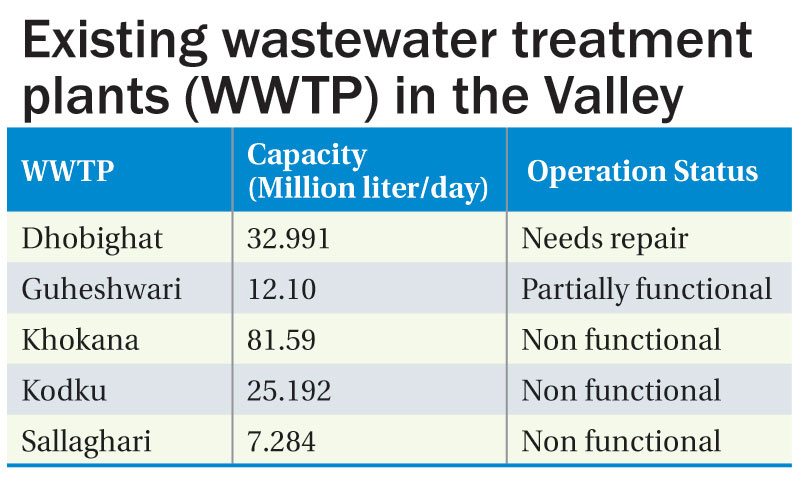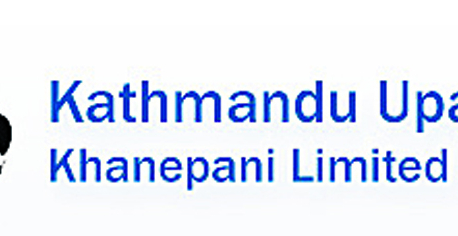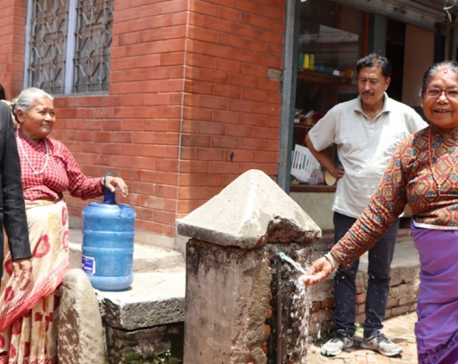
OR
KUKL to reconstruct wastewater treatment plants
Published On: July 7, 2016 03:50 AM NPT By: Sanskriti Acharya

KATHMANDU, JULY 7: The Project Implementation Directorate (PID) under the Kathmandu Upatyaka Khanepani Limited (KUKL) is all set to reconstruct five wastewater treatment plants (WWTPs) in the Kathmandu Valley within three years.
The treatment plants were installed in five locations Dhobighat, Guheshwari, Khokana, Kodku and Sallaghari some three decades ago. All of them have remained dysfunctional due to lack of timely repair and maintenance, according to the KUKL.
Out of the five, the reconstruction of Guheshwari and Hanumante wastewater treatment plants has already started while that of the remaining three plants is expected to commence after three months, Surya Raj Kandel, Senior Divisional Engineer at PID told Republica.
The PID had concluded the detailed feasibility study to reconstruct WWTPs two years ago. The KUKL has estimated that the project will require a budget of $13.4 million.
“Two plants are under construction at present and we are planning to complete all five projects within three years,” he said.
It is estimated that 500 million liters of wastewater is produced per day in Kathmandu and all this directly gets discharged into the rivers.
“The decision to construct the plants is very imperative as the river waters in the Valley are highly contaminated and harmful for the environment as well as humans if consumed,” he Kandel.
The treatment plants are designed to be eco-friendly and will help make rivers free from odors. The PID has also planned to develop public parks around the plants premises.
In Nepal, there are mainly three processes for the sewage treatment: the use of natural treatment plant, mechanical treatment plant and pit latrines. Among these, pit latrines are used especially in remote areas.
Natural treatment plants are being used in some of the municipalities and there are 5 mechanical treatment plants only in Kathmandu Valley.
Asked about the lack of maintenance of existing plants, Janak Bhusan Dhaubhadel, section officer at the Department of Water Supply and Sewerage (DWSS) indicated lack of budget.
“Every year the department gets a budget of Rs 40 million but the allocated budget is not sufficient to build and repair sewage treatment plants,” he said.
Existing wastewater treatment plants (WWTP) in the Valley
WWTP Capacity (Million liter/day) Operation Status
Dhobighat 32.991 Needs repair
Guheshwari 12.10 Partially functional
Khokana 81.59 Non functional
Kodku 25.192 Non functional
Sallaghari 7.284 Non functional
You May Like This

KUKL to build water treatment plants in three locations
KATHMANDU, June 1: The Project Implementation Directorate under the Kathmand Upatyaka Khanepani Limited is to construct three water treatment plants... Read More...

Supply of Melamchi drinking water begins in Bhaktapur from today
KATHMANDU, May 26: The supply of the much-awaited drinking water from the Melamchi Drinking Water Project in the households of... Read More...






Just In
- Challenges Confronting the New Coalition
- NRB introduces cautiously flexible measures to address ongoing slowdown in various economic sectors
- Forced Covid-19 cremations: is it too late for redemption?
- NRB to provide collateral-free loans to foreign employment seekers
- NEB to publish Grade 12 results next week
- Body handover begins; Relatives remain dissatisfied with insurance, compensation amount
- NC defers its plan to join Koshi govt
- NRB to review microfinance loan interest rate











Leave A Comment